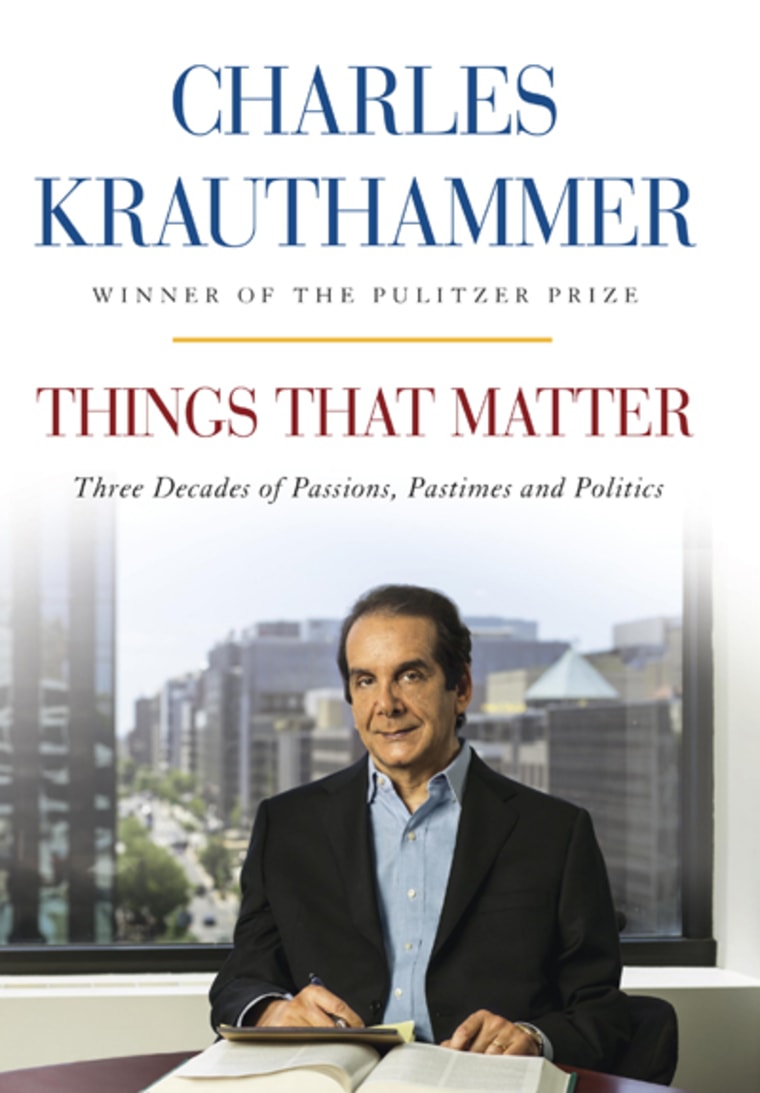
I'm often asked: "How do you go from Walter Mondale to Fox News?" To which the short answer is: "I was young once." The long answer begins by noting that this is hardly a novel passage. The path is well trodden, most famously by Ronald Reagan, himself once a New Deal Democrat, and more recently by a generation of neoconservatives, lead by Irving Kristol & Norman Podhoretz. Every story has its idiosyncrasies. These are mine.
I'd been a lifelong Democrat, and in my youth a Great Society liberal. But I had always identified with the party's Cold War liberals, uncompromising Truman-Kennedy anti-communists led by the likes of Henry Jackson, Hubert Humphrey and Pat Moynihan. Given my social-democratic political orientation, it was natural for me to work for Democrats, handing out leaflets for Henry Jackson in the 1976 Massachusetts Democratic primary (Jackson won; I handed out a lot of leaflets.) and working for Mondale four years later.
After Reagan took office in 1981, however, Democratic foreign policy changed dramatically. Some, of course, had begun their slide toward isolationism years earlier with George McGovern's "Come Home America" campaign. But the responsibility of governance imposes discipline. When the Soviets provocatively moved Intermediate-range nuclear forces (INF) into Eastern Europe, President Carter and German chancellor Helmut Schmidt got NATO to approve the counter deployment of American INFs in Western Europe.
However, as soon as they lost power in 1981, the Democrats did an about-face. They fell in the thrall of the "nuclear freeze," an idea of unmatched strategic vacuity, which would have canceled the American IMF deployment while fresszing the Soviet force in place. The result would have been a major strategic setback, undermining the nuclear guarantee that underwrote the NATO alliance.
Years later, leading European social democrats repented their youthful part in the anti-nuclearmovement of the early ‘80s. But the Democratic Party never did. It went even further left. Itreflexively opposed every element of the Reagan foreign policy that ultimately brought totalvictory in the Cold War: the defense buildup, the resistance to Soviet gains in Central Americaand the blunt "evil empire" rhetoric that gave hope and succor to dissidents in the gulag.Democrats denounced such talk as provocative and naïve -- the pronouncements of "anamiable dunce," to quote Clark Clifford’s famous phrase disdaining Reagan.
And most relevant now, Democrats became implacable foes of missile defense, in large partbecause the idea originated with Reagan. The resistance was militant and nearly theological. Itlasted 30 years -- until, well, today, when a Democratic administration, facing North Koreannuclear threats, frantically puts in place (on Guam, in Alaska, in California, and off the Koreancoast) the few missile-defense systems that had survived decades of Democratic oppositionand defunding.
I wrote most of the New Republic editorials opposing the Democratic Party’s foreign policy ofretreat, drawing fierce resistance from and occasioning public debate with my more traditionallyliberal TNR colleagues. My attack on the nuclear freeze, announced the publisher rather ruefullyat the next editorial meeting, produced more canceled subscriptions than any other article in themagazine's history. At that time, I still saw myself as trying to save the soul of the DemocraticParty, which to me meant keeping alive the activist anti-Communist tradition of Truman andKennedy. But few other Democrats followed. By the mid-1980s, Humphrey and Jackson weredead and Moynihan had declined to pick up their mantle. The Cold War contingent of theDemocratic Party essentially disappeared. As someone who had never had any illusions abouteither communism or Soviet power, I gave up on the Democrats.
On foreign policy, as the cliché goes, I didn't leave the Democratic Party. It left me.Not so on domestic policy. The Democratic Party remained true to itself. I changed. The originof that evolution is simple: I'm open to empirical evidence. The results of the Great Societyexperiments started coming in and began showing that, for all its good intentions, the War onPoverty was causing irreparable damage to the very communities it was designed to help.Charles Murray's Losing Ground was one turning point. Another, more theoretical but equallypowerful, was Mancur Olson's The Rise and Decline of Nations which opened my eyes to theinexorable "institutional sclerosis" that corrodes and corrupts the ever-enlarging welfare state.The ‘80s and ‘90s saw the further accumulation of a vast body of social science evidence --produced by two generations of critics from James Q. Wilson to Heather McDonald, writing inThe Public Interest, City Journal and elsewhere -- on the limits and failures of the everexpandingLeviathan state.
As I became convinced of the practical and theoretical defects of the social-democratictendencies of my youth, it was but a short distance to a philosophy of restrained, free-marketgovernance that gave more space and place to the individual and to the civil society that standsbetween citizen and state. In a kind of full-circle return, I found my eventual political home in avision of limited government that, while providing for the helpless, is committed above all toguaranteeing individual liberty and the pursuit of one's own Millian "ends of life."Such has been my trajectory. Given my checkered past, I've offered this brief personal historyfor those interested in what forces, internal and external, led me to change direction bothvocationally and ideologically. I've elaborated it here because I believe that while everyone hasthe right to change views, one does at least owe others an explanation. The above is mine. Thisbook represents the product of that journey.
Reprinted from the book THINGS THAT MATTER: Three Decades of Passions, Pastimes and Politics. Copyright 2013 by Charles Krauthammer. Published by Crown Forum, an imprint of the Crown Publishing Group, a division of Random House LLC, a Penguin Random House Company.